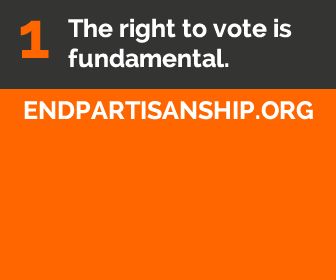60% of Idaho Voters Denied Access to Public Elections

 Idaho Republican Party v. Ysura. After the court ruling, political parties were given the option to choose their own primary elections. The Democratic Party chose a semi-closed primary, which allows independent, decline-to-state, and third party voters to participate in the party's primary elections if the voter changes their political affiliation on election day. Republicans chose a closed primary, which keeps participation exclusive to party members.
Idaho Republican Party v. Ysura. After the court ruling, political parties were given the option to choose their own primary elections. The Democratic Party chose a semi-closed primary, which allows independent, decline-to-state, and third party voters to participate in the party's primary elections if the voter changes their political affiliation on election day. Republicans chose a closed primary, which keeps participation exclusive to party members.
However, despite this change to the electoral system in Idaho, voters continue to reject party labels in growing numbers. According to the latest data on voter registration, nearly 60 percent of registered voters in the state are unaffiliated. This means they are independent, decline-to-state, or are members of a third party not represented in the voter rolls. Regardless, these are voters who obviously feel abandoned by the major political parties and make up one of the largest groups of unaffiliated voters in the nation.
This also means, however, that nearly half a million voters are denied access to the pivotal primary process or must sacrifice their own First Amendment right of non-association to participate. as well as their constitutionally-protected right to have a meaningful vote at the ballot box. It is one more example where the major parties have argued that their rights trump the rights of voters, even when these primary elections are paid for by the very individuals they want to keep out of their primaries.It is clear after the 2011 court ruling that election reform is needed in Idaho. Political parties should be allowed to hold their own primaries and decide who is able to participate. That is the right of a private organization -- as the Supreme Court has confirmed political parties are. However, these primaries should not be paid for with public funds and if primaries are going to be public elections, every voter and every candidate -- regardless of partisan affiliation -- should have equal access to the ballot.
Photo Credit: Vepar5 / shutterstock.com


